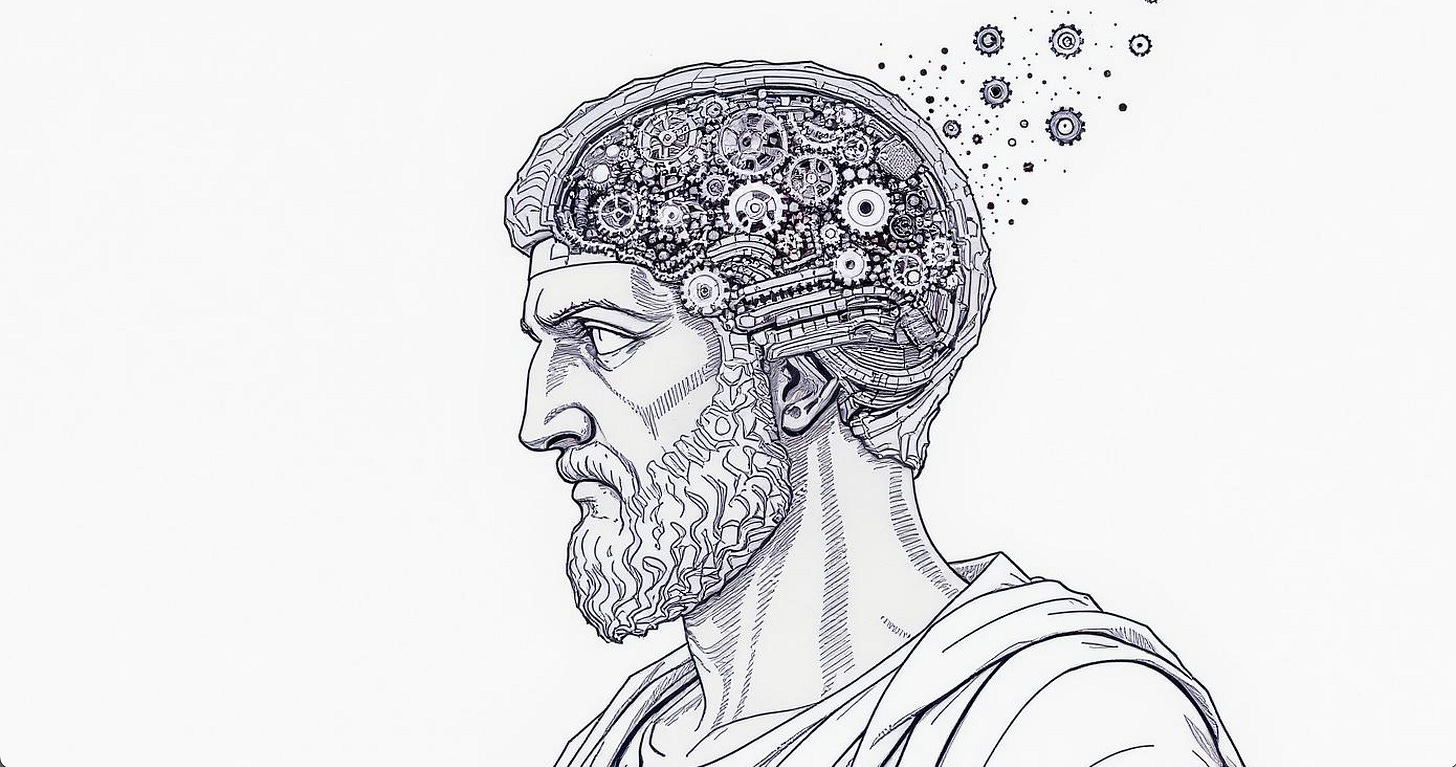Delete. Preserve. Proceed.
When machines need to forget, what does that teach us about us?
Dawn.
I open Meditations. I’m reminded to focus on today, not yesterday.
Limit yourself to the present. Understand what happens—to you, to others. VII. 29
I close it and look down at my notes app. Yesterday's problems stare back. Some taught lessons, others left bruises. How to preserve one while releasing the other?
That is the whole game.
Computer scientists have stumbled onto an old truth while solving a new problem. Privacy and copyright laws are demanding AI forget personal data. There is a new concept called Targeted Information Forgetting1. The short of it: teach LLMs to forget the private details, remember the grammar. Drops “John lives at 123 Main Street” but keep the architecture of sentences. Forgets certain facts by necessity and still remember how to dance.
Which made me think: if machines need selective forgetting to function, what does that teach about us?
Maybe nothing. Or maybe everything. Maybe the ancient philosophers would nod, recognizing their old wisdom in new silicon. They knew that rehearsing loss made it land softer. That dwelling on every hurt made you heavy. That some forgetting was necessary for living.
We already know this in our bones
After a breakup, we try to unlearn those 2 AM cruelties while keeping the lesson about boundaries. Forget too much and we date the same disaster with a different face. Forget too little and we're frozen, unable to trust. The art is in the edit. Keeping just enough scar tissue to navigate but not enough that we limp.
This editing happens beyond the personal. Walk through any city and you're reading society's memory algorithms made visible. Confederate statues fall while Holocaust museums rise. Who programs these social algorithms matters desperately. Confederate statues encoded one story: that rebellion deserved honor. Their removal rewrites the code. Holocaust museums preserve different data: not the glory of power but the cost of forgetting our capacity for evil. Both are memory technologies, but with opposite intentions.
A surgeon trained in the '80s must unlearn procedures that would kill today while keeping her intuition for blood flow. Her hands forget old choreography but remember tissue's resistance. Mastery means knowing what to trash. The best practitioners are ruthless deleters of their own expertise.
To see the teenager, we must release the toddler. Not erase. Release. Tantrums fade to footnotes while the spark of curiosity nurtured becomes the throughline.
The Math of Forgetting
The same researchers discovered AI that forgot selectively kept 70% of its smarts. Total amnesia? It dropped to 11%, basically forgetting how to speak. The surgeon retraining her hands, the person navigating a breakup, the teenager emerging from childhood tantrums: they're all running the same algorithm. Forget everything and you lose the ability to function. Forget nothing and you can't move forward. Even machines need selective memory.
Marcus knew this: "Very little makes a happy life; it's all in how you think." Not how you remember. How you think. Present tense. Live editing.
Perfect memory: gift or curse? Ask the insomniac replaying failures in 4K. "Moving on" isn't self-deception, it's choosing which truth gets your attention. Strategic forgetting lets the essential breathe. Otherwise we drown in democracy where every wound gets equal votes.
Tonight's algorithm:
What specific sting can you release?
Which memories help you become?
Which just loop, generating heat but no light?
The answer isn't in the model.
It's in the edit.
It's always been in the edit.
Delete. Preserve. Proceed.


